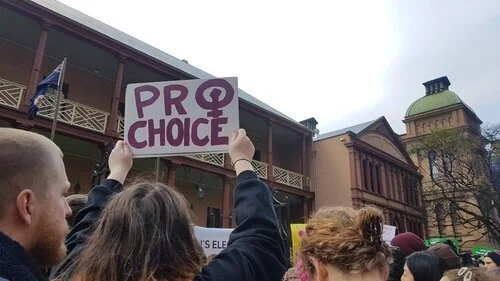As we reach the end of 2020, four individuals – Bernard Collaery, Witness K, David McBride and Richard Boyle – are being prosecuted by our government. These whistleblowers spoke up in the public interest, and now face the very real prospect of jail time. If we want to live in a transparent, accountable democracy, that should trouble us all.
Read MoreOur ability to come together and speak out on the issues we care about is fundamental to our democracy.
Read MoreRoutine strip searching involves forcing children as young as ten to remove their clothing in front of adult prison guards on a regular basis.
Read MoreAs we reach the end of 2020, four individuals – Bernard Collaery, Witness K, David McBride and Richard Boyle – are being prosecuted by our government. These whistleblowers spoke up in the public interest, and now face the very real prospect of jail time.
Read MoreEveryone deserves to be safe in the face of COVID-19, but immigration detention facilities in Australia are creating unacceptable health risks.
Read MoreLaws currently being considered by the Tasmanian government would allow the practice of routine strip-searching of kids to continue. If it’s the government’s intention to enact laws that protect kids, rather than cause them more harm, this opportunity to finally get the law right shouldn’t be squandered.
Read MoreSolitary confinement is a cruel practice that causes irreparable harm to the people who are subjected to this form of physical and sensory isolation. Governments must ban the archaic and inhumane use of solitary confinement in Australian prisons.
Read MoreAustralia and the world face a public health emergency in coronavirus (COVID-19), but little has been said about the people in our prisons and youth detention centres.
Read MoreIt’s clear there have been serious failures in Victoria’s hotel quarantine program and that infection control procedures must improve to protect the community. But what’s not been discussed enough is how quarantine needs to improve for the safety and welfare of the people being detained.
Read MoreIn response to the COVID-19 public health emergency, most states across Australia declared a state of emergency and brought in new laws imposing severe restrictions on civil liberties and an increase in policing powers.
Read MoreThe Victorian Government is requiring people in Melbourne and the Mitchell Shire to wear a face covering or mask when leaving their home to help stop the spread of COVID-19. This explainer seeks to debunk claims that the requirement breaches people’s human rights.
Read MoreSilent prayer outside abortion clinics can be particularly harmful to women trying to access healthcare. The objects of the Health Care (Safe Access) Amendment Bill 2020 (SA) (‘the Bill’) would be completely undermined by an amendment that authorises silent prayer within a health access zone, by allowing anti-abortion activists to invade the privacy and threaten the wellbeing of patients seeking abortion care.
Read MoreWhile politicians say that police are committed to taking a "sensible approach", history has shown that too often marginalised groups are disproportionately punished through an expansion of policing powers. In particular, people living with a disability, women escaping family violence and those experiencing homelessness may be hardest hit. In addition, increased powers - and police discretion - open the way for racialised and discriminatory policing, too often experienced by Aboriginal and Torres Strait Islander people.
Read MoreThe Human Rights Law Centre works with international NGOs to highlight the human rights challenges presented by COVID-19 globally and to ensure that UN human rights mechanisms, such as Human Rights Council and Special Procedures, can support countries like Australia in implementing human rights based responses to COVID-19, and hold them to account when they fail to do so.
Read MoreKids should not be in prisons, and they definitely should not be in prisons right now.
Read MoreThis messaging guide seeks to help people and organisations who are advocating for a an Australian Charter of Human Rights and Freedoms to craft their public messages in a way that will energise supporters and convince neutral audiences about the many benefits a Charter will provide to the whole community.
Read MoreLast year, Philanthropy Australia held its Philanthropy Meets Parliament Summit where ideas about the state of our democracy were debated, tested and challenged. Continuing that debate in to 2020, Hugh de Kretser, Executive Director of the Human Rights Law Centre, highlights how important charity advocacy is for a healthy democracy.
Read MoreThe Human Rights Law Centre has long advocated for comprehensive, fair and effective anti-discrimination laws across Australia. Australia needs stronger protections from discrimination for people of faith, but unfortunately, draft legislation released by the Morrison Government in 2019 contained a number of major flaws and failed to strike the right balance.
Read MoreSome politicians seem to spend more time with their mates in the corporate box than with voters. The Palaszczuk Government is proposing laws to change this. But donation caps will hurt grassroots advocacy and charities the most, and lets corporations off the hook.
Read MoreTwo men, lawyer Bernard Collaery and his client, known as Witness K, now face jail time for blowing the whistle on a disgraceful chapter in Australian intelligence history. The episode highlights the need for stronger whistleblower protections in Australia.
Read More



















